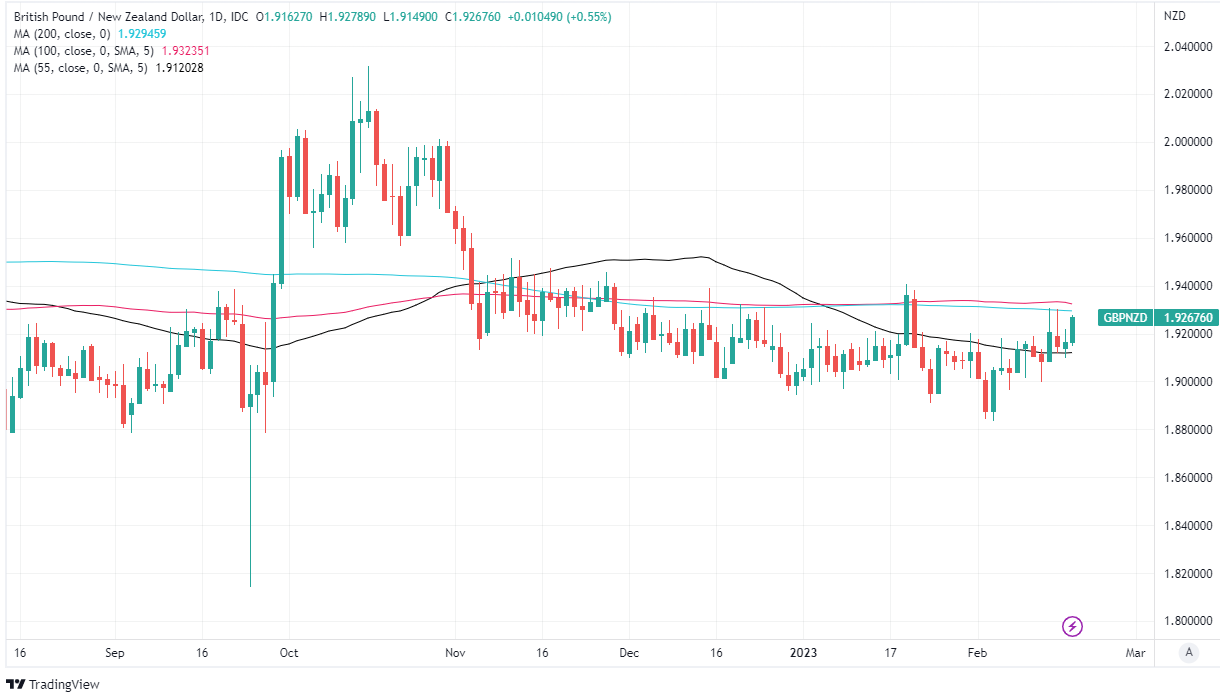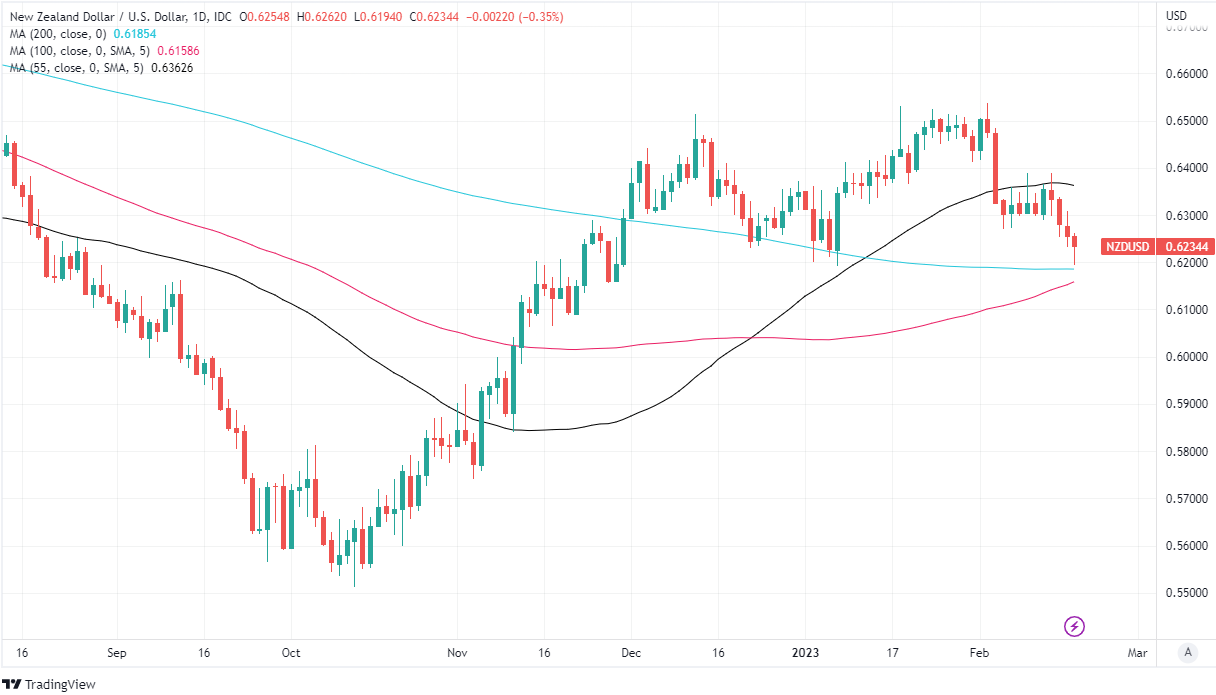New Zealand Dollar Prospects Obscured by High Uncertainty Over RBNZ Outlook
- Written by: James Skinner
"On balance, local data since the November MPS have pointed towards inflation pressures not being quite as bad as the RBNZ assumed. But inflation pressures are far too strong, and we are certainly not expecting the RBNZ to go ‘soft,’" - ANZ.

Image © Adobe Stock
The New Zealand Dollar lagged behind many other major currencies this week and its prospects are currently obscured by exceptionally high uncertainty over the outlook for the Reserve Bank of New Zealand (RBNZ) cash rate owing to recent inflation developments and natural disasters in the country.
New Zealand's Dollar was already navigating an uncertain outlook even before the latest bout of flooding caused widespread damage and disruption in early February, though this is much more the case now since Cyclone Gabrielle compounded the loss of life and displacement of people on Monday.
With at least nine fatalities and an estimated 10,000 people displaced, there is a high risk or chance of the RBNZ leaving its cash rate unchanged at 4.25% next Wednesday in contrast to market expectations for an increase to 4.75%.
"The floods could be inflationary (rebuilding will exacerbate labor shortages and supply issues), so it is probably not going to change the RBNZ’s calculus much," says Brent Donnelly, CEO of Spectra Markets and a veteran trader with time at hedge funds and banks like Lehman Brothers and HSBC.
"Kiwibank wrote a note suggesting the RBNZ should pause for one meeting given the uncertainty around the cyclone and flooding, but that seems like wishful thinking," Donnelly writes in Friday's AM/FX daily macro newsletter.
 Above: Pound to New Zealand Dollar rate shown at daily intervals. Click image for closer inspection.
Above: Pound to New Zealand Dollar rate shown at daily intervals. Click image for closer inspection.
Compare GBP to NZD Exchange Rates
Find out how much you could save on your pound to New Zealand dollar transfer
Potential saving vs high street banks:
NZ$5,350
Free • No obligation • Takes 2 minutes
While some local economists also agree that repair and rebuilding work resulting from February's disasters will sustain demand within the economy and risk boosting inflation, the RBNZ has previously held off on necessary increases in its cash rate in acknowledgment of national emergencies.
Cyclone Gabrielle led the government to declare a State of National Emergency on Tuesday, the first since the pandemic in which New Zealand's final 'lockdown' did lead the RBNZ to delay the first increase of its cash rate for this cycle.
The August 2021 delay led to flash-in-a-pan losses for the New Zealand Dollar and the same thing couldn't be completely ruled out for next Wednesday.
"We expect the RBNZ will raise the Official Cash Rate (OCR) 50bp to 4.75% at its Monetary Policy Statement (MPS) next Wednesday. In terms of alternatives, a 75bp hike is more likely than +25bp, in our view," says Sharon Zollner, chief economist at ANZ.
"On balance, local data since the November MPS have pointed towards inflation pressures not being quite as bad as the RBNZ assumed. But inflation pressures are far too strong, and we are certainly not expecting the RBNZ to go ‘soft,’" Zollner and colleagues write a Wednesday research briefing.
 Above: NZD/USD shown at daily intervals. Click image for closer inspection. To optimise the timing of international payments you could consider setting a free FX rate alert here.
Above: NZD/USD shown at daily intervals. Click image for closer inspection. To optimise the timing of international payments you could consider setting a free FX rate alert here.
New Zealand's inflation rate held steady at 7.2% in the final quarter last year from 7.9% while the RBNZ's latest survey suggested on Tuesday that business' expectations for inflation had fallen at all time horizons except for the immediate year ahead when polled in the new year.
"The importance of this survey in the RBNZ’s inflation and interest rate modelling has waned over time, with the central bank now looking at a range of measures for tracking inflation pressures. Nevertheless, today’s release will still help to calm the RBNZ’s nerves about the upside risks for inflation," writes Satish Ranchhod, a senior economist at Westpac, in a Wednesday note.
"The RBNZ had expected inflation would rise to 7.5% in late 2022 and that it would remain around those levels in early 2023. Consistent with that, the RBNZ likely expected to see continued strength in inflation expectations. Instead, December quarter inflation came in lower than the RBNZ expected at 7.2%, and it looks set to undershoot their forecast in early 2023 also," he adds.
Expectations for this year ticked higher from 5.08% to 5.11% but dipped much more noticeably from 3.62% to 3.30% when businesses were asked where they see inflation in two years ahead while survey responses to questions about inflation some five years out were also lower.
Meanwhile, other data has painted a mixed picture of activity in the Kiwi economy with official figures suggesting slower growth in employment and pay packets over the final quarter while private sector surveys have indicated continued healthy levels of consumer spending.




